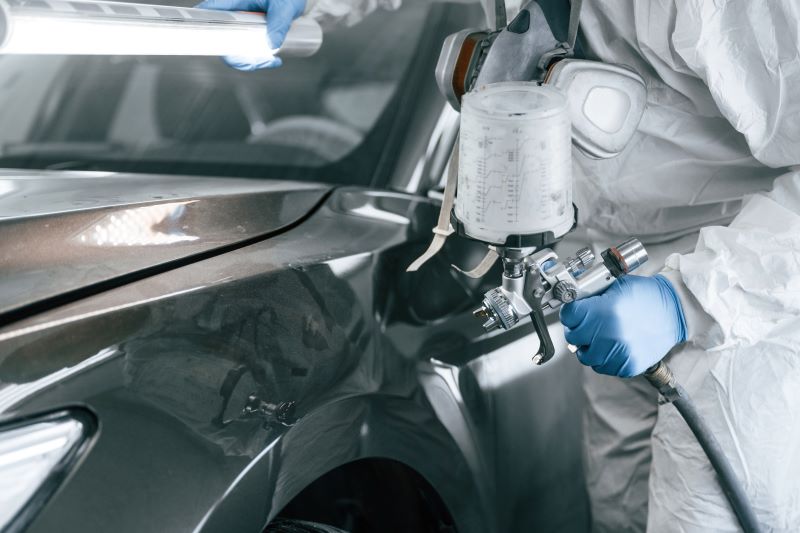In the realm of vehicle customization, the specialized work of auto body shops in crafting bespoke glass designs is often overlooked, despite its significant contribution to both aesthetic appeal and functionality. The meticulous craftsmanship and technical prowess required to transform a concept into a tangible piece of automotive artistry is a testament to the integral role these professionals play. As we explore this subject further, we will uncover the intricate processes these craftsmen navigate, the unique skills they possess, and the inherent benefits a custom glass design can bring to your vehicle.
Key Takeaways
- Auto body shops play a pivotal role in customizing vehicle glass, enhancing aesthetics, durability, and vehicle value.
- These shops employ skilled craftsmen proficient in intricate glass design and safety regulations.
- The customization process includes detailed sketches, use of modern technology, and thorough safety inspections.
- Auto body shops can incorporate advanced safety features, providing shatter-resistant glass and UV protection.
Understanding Customized Auto Paint Repair Huntington Beach Glass
Customized auto glass, a specialized facet of Auto Paint Repair Huntington Beach customization, involves the precise alteration and design of vehicle glass to meet specific aesthetic or functional requirements. This process, while seemingly simple, is a product of meticulous engineering and detailed craftsmanship. It’s a delicate balance between aesthetic appeal and safety regulations, with safety implications always at the forefront of any customization project.
Technological advancements have significantly impacted this sector, allowing for more complex and intricate designs. Innovations such as smart glass with integrated display functions and advanced safety features have pushed the boundaries of what is possible in auto glass customization. These technologies not only enhance the vehicle’s aesthetic appeal but also improve its safety and functionality.

However, customization must not compromise safety. The safety implications of customized auto glass are paramount. It must meet all regulatory standards and provide the necessary protection to vehicle occupants. This involves using high-quality materials and adhering to strict installation procedures to maintain the structural integrity of the vehicle.
Essential Skills of Auto Glass Craftsmen
In the realm of customized auto glass, the skills of craftsmen are fundamental to the realization of intricate designs that balance both aesthetic desires and safety standards. These craftsmen require a highly specialized set of skills honed through rigorous Craftsmen Training programs. These programs typically encompass a comprehensive curriculum that includes theoretical knowledge, practical applications, and safety procedures.
The initial stage of Craftsmen Training lays the groundwork for understanding the properties of auto glass, its potential for customization, and the importance of safety regulations. Working with auto glass requires exceptional precision; a slight misjudgment can lead to significant flaws that compromise both the aesthetics and safety of the final product.
Tool Mastery is another essential skill. Craftsmen need to be proficient in the use of a multitude of tools, ranging from basic hand tools to sophisticated cutting and shaping machines. This mastery ensures that they can manipulate the glass to match the desired design, while maintaining the structural integrity of the material.
The Process of Custom Glass Designing
Having understood the skills required by craftsmen, we can now move into exploring the intricate process of custom glass designing. This begins with a comprehensive understanding of the client’s vision. Detailed sketches are made, which serve as the blueprint for the final design. The use of modern technology, like CAD software, allows for precise detailing and visualization.
Glass engraving techniques form a significant part of this process. Skilled craftsmen employ various methods such as etching, sandblasting, and diamond-tipped engraving, each offering unique finishes. This stage requires a keen eye for detail and a steady hand for flawless execution.
However, customization doesn’t mean compromising on safety. Safety measures in customization are paramount. Reinforced laminated glass is typically used in vehicles due to its high impact resistance. During the design process, it is crucial to ensure the structural integrity of the glass is not compromised.
Lastly, the crafted glass is thoroughly inspected for any flaws or weaknesses before it is installed into the vehicle. This rigorous process ensures that custom glass designs are not only aesthetically pleasing but also safe and durable, seamlessly blending beauty with practicality.
Benefits of Vehicle Glass Customization
Undeniably, vehicle glass customization offers numerous advantages, ranging from enhanced aesthetic appeal to increased vehicle value and individuality. Auto body shops have honed their expertise in this field, providing services that not only enhance the vehicle’s look but also its functionality and durability.
One of the significant benefits of vehicle glass customization is the improvement in glass durability. Auto body shops use high-quality materials and advanced techniques to enhance the strength and longevity of the vehicle’s glass. This results in a product that can withstand harsh weather conditions and everyday wear and tear, thereby reducing the risk of chips, cracks, and other damages.
Furthermore, safety enhancements are another pivotal benefit of customized vehicle glass. Customization can incorporate features like shatter-resistant glass, which significantly reduces the risk of injury in the event of an accident. UV protection is another safety feature that can be added during customization, protecting passengers from harmful ultraviolet rays and reducing glare for improved visibility.
Conclusion
In conclusion, the importance of auto body shops in the arena of customized glass design for vehicles is undeniable. The expertise of these craftsmen, combined with the intricate process of design, results in a product that enhances not only the aesthetic appeal but also the functionality of a vehicle. Their pivotal role in vehicle customization is fundamental to automotive innovation, transforming the standard vehicle into an individualized work of art.